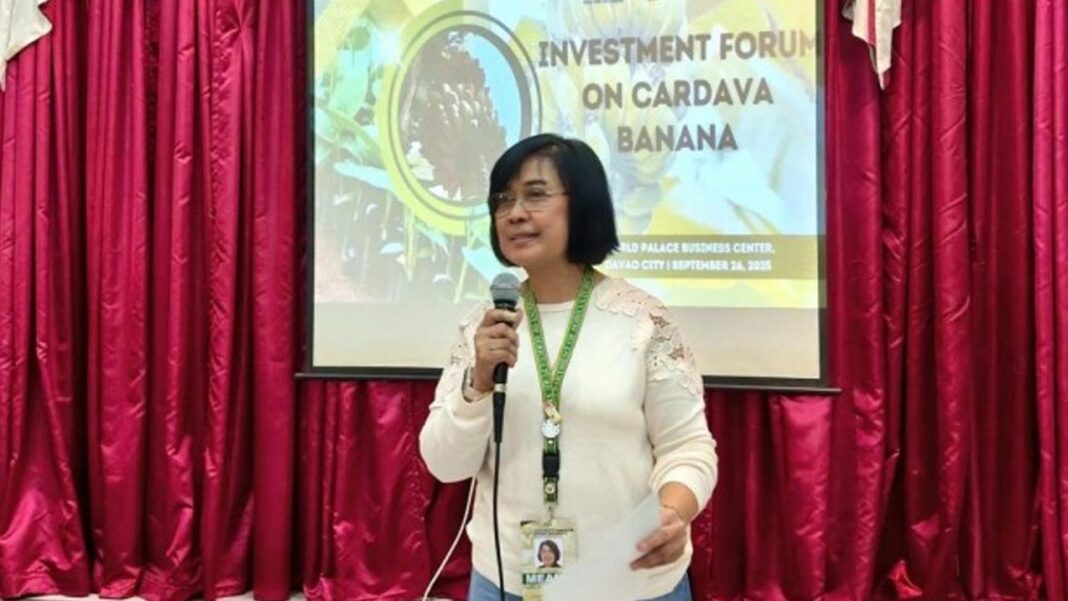The Department of Agriculture–Davao (DA-11) announced on Wednesday that it recently brought together key stakeholders to boost the growth and competitiveness of the Cardava banana sector.
In a statement on Wednesday, DA-11 regional technical director Marie Ann Constantino emphasized the importance of establishing direct connections across the banana value chain.
“Such initiatives pave the way for sustainable enterprise development, enabling the region’s Cardava banana industry to thrive both domestically and in the global market,” she said.
The forum, held on Sept. 26, gathered smallholder banana farmers, farmer cooperatives and associations (FCAs), and agricultural technicians from various local government units (LGUs).
According to Constantino, the event offered a platform to assess the Cardava banana industry, introduce improved technologies, and showcase new investment and market opportunities.
Notable buyers such as Gerb Golden Hands Corporation and SAGREX Foods Incorporated also participated, offering insights into market demand, quality standards, and pricing strategies.
“Their engagement allowed producers to better understand buyer requirements, paving the way for stronger supplier-buyer partnerships,” Constantino said.
Among the industry’s recent success stories is the global market linkage achieved by the Ata Paquibato Tribal Association (APATA), an Indigenous Peoples’ (IP) group that sold 1,593 kilograms of Cardava bananas to See’s International Food Manufacturing Corporation in August.
The DA facilitated the shipment through its Kadiwa trucks, enabling APATA to deliver its initial batch directly to See’s factory in Barangay Bunawan of the city.
Cardava bananas thrive in various soil types—except highly sandy or rocky—and grow best in consistently warm and humid climates, according to the Department of Trade and Industry (DTI).
The variety is also a priority commodity under the DTI’s RAPID (Rural Agro-Enterprise Partnership for Inclusive Development and Growth) project, supported by the International Fund for Agricultural Development.
The initiative aims to increase rural incomes by developing value chains for key agribusinesses. (PNA)


